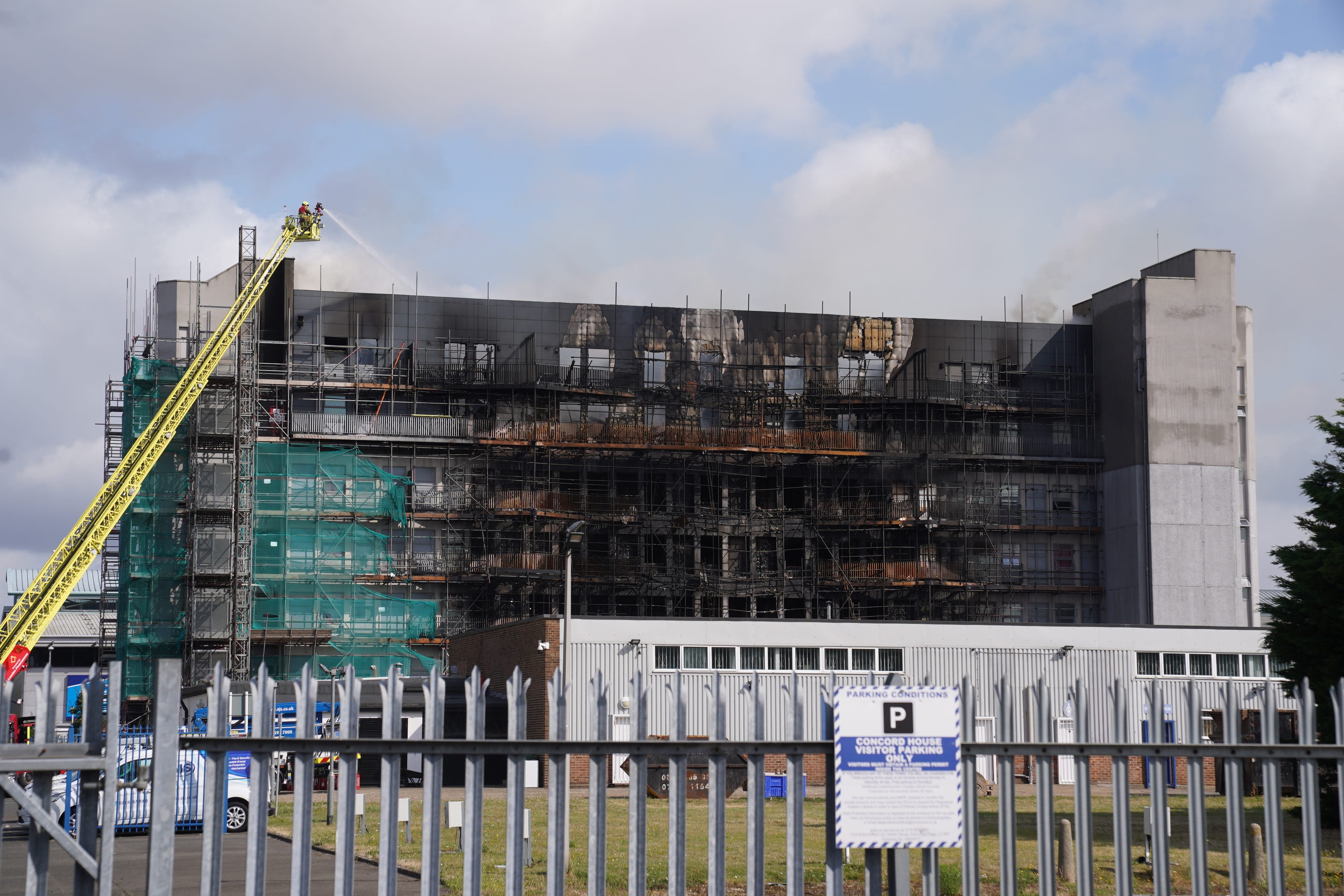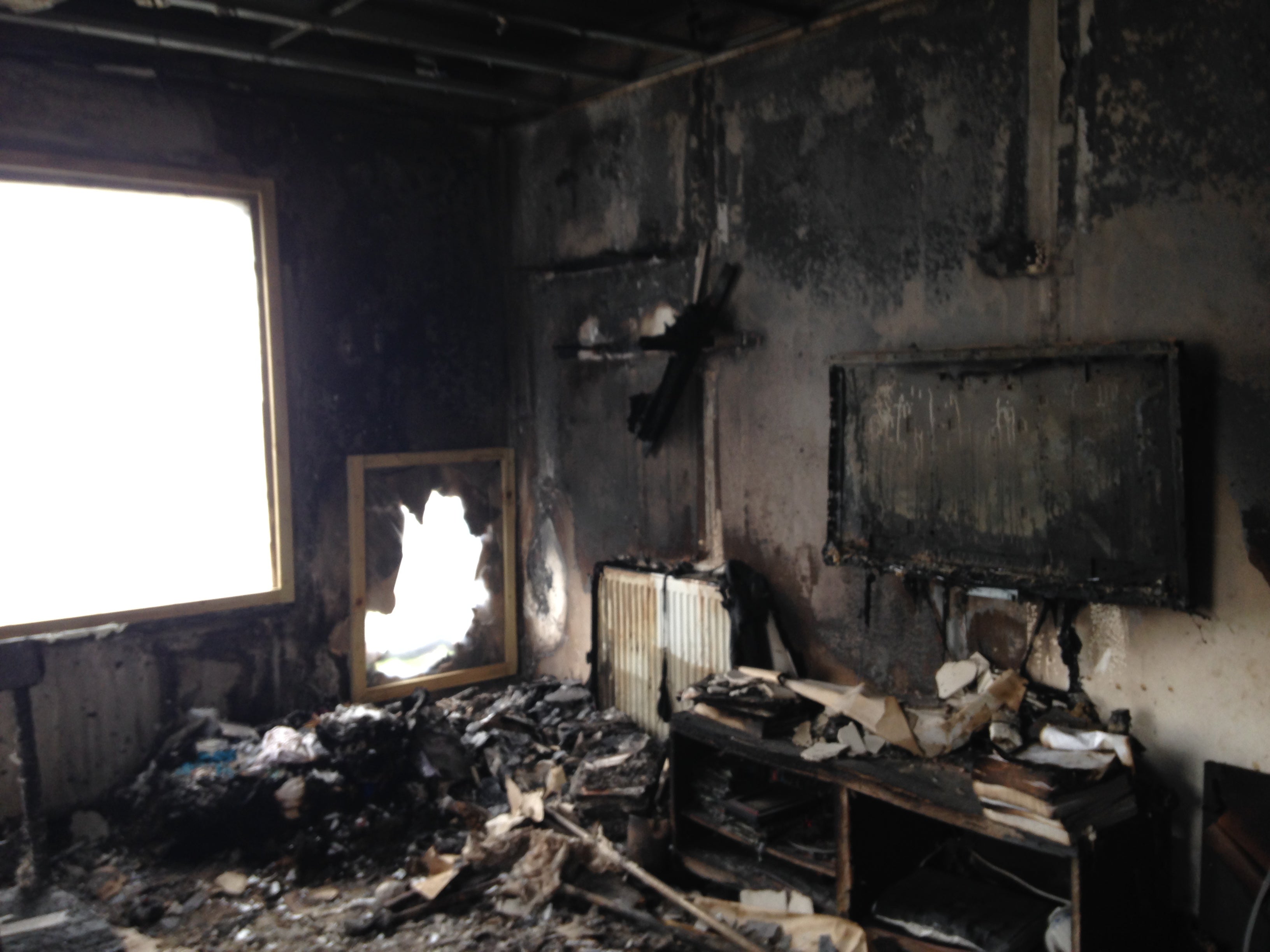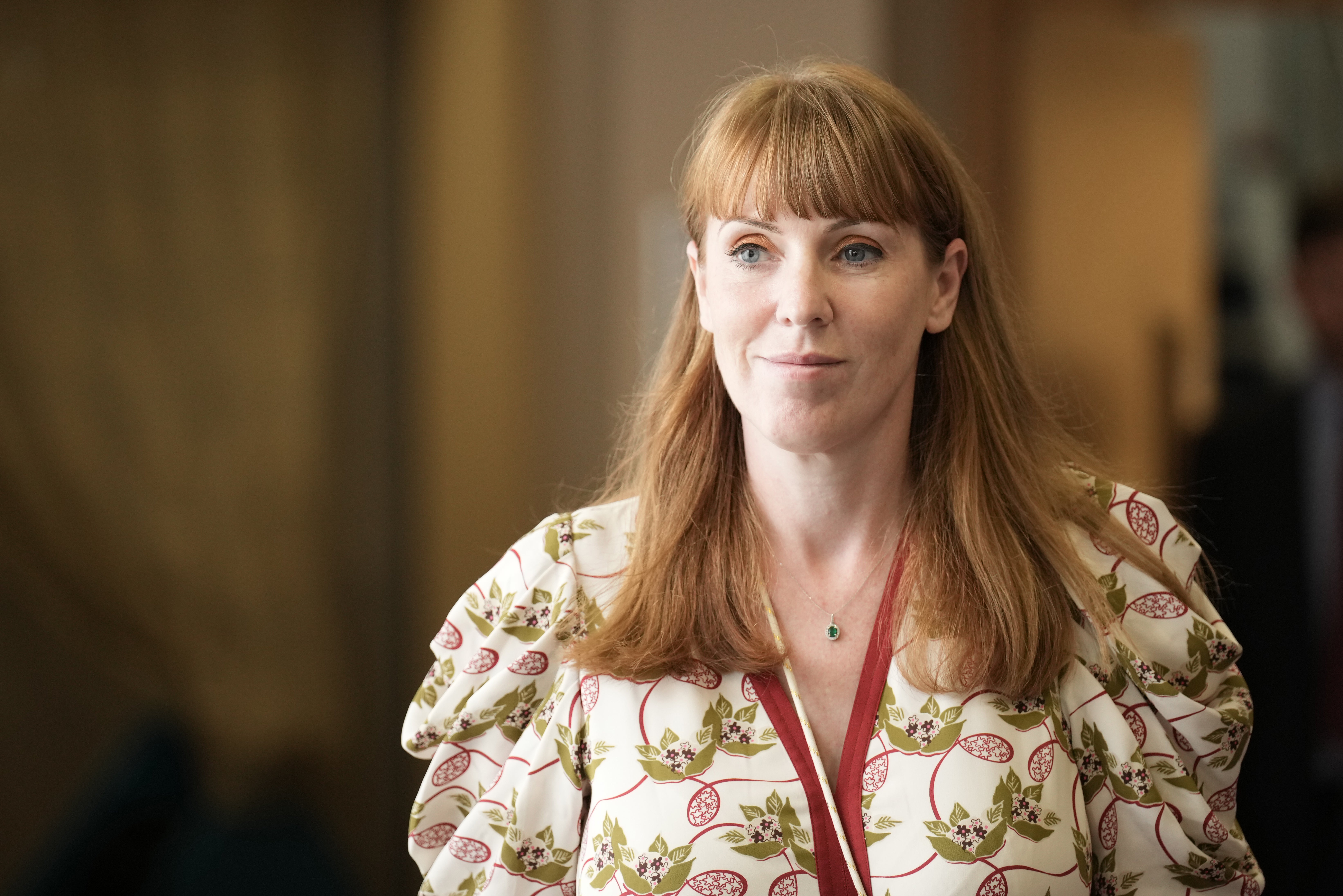‘Hopefully we’ll get down the stairs fast enough’: Residents still caught in cladding crisis after Grenfell
Seven years after Grenfell, thousands of residents are still living in unsafe buildings. Victims of the building safety crisis speak to Holly Bancroft about their fears.
Your support helps us to tell the story
From reproductive rights to climate change to Big Tech, The Independent is on the ground when the story is developing. Whether it's investigating the financials of Elon Musk's pro-Trump PAC or producing our latest documentary, 'The A Word', which shines a light on the American women fighting for reproductive rights, we know how important it is to parse out the facts from the messaging.
At such a critical moment in US history, we need reporters on the ground. Your donation allows us to keep sending journalists to speak to both sides of the story.
The Independent is trusted by Americans across the entire political spectrum. And unlike many other quality news outlets, we choose not to lock Americans out of our reporting and analysis with paywalls. We believe quality journalism should be available to everyone, paid for by those who can afford it.
Your support makes all the difference.The sight of a London tower block going up in flames last month brought into sharp focus the danger that 75-year-old Mike Daine is still living in.
Mr Daine’s building in Cheshire was assessed as having flammable cladding in 2019 but remedial works are yet to start. “When Dagenham went up, it just brought it all home to us again,” he explained.
Residents of Spectrum House in Dagenham were forced to flee their burning homes in the early hours of Monday 26 August. Some described evacuating as dense black smoke filled their apartments and their belongings were taken up by the blaze.
The block had known safety issues and was undergoing remedial work to remove and replace non-compliant cladding on the fifth and sixth floors.
Seven years after safety concerns were raised by the Grenfell disaster, there are still 4,630 residential buildings 11m and taller with unsafe cladding.
Remediation work has only begun or been completed on 50 per cent of them, government data shows. Fresh statistics, due to be released on Thursday, will provide the first update on the number of residents still affected by the building safety crisis since the publication of the Grenfell inquiry report.
Mr Daine, who lives at The Deck building in Runcorn, is one of those still living in fear.
He told The Independent: “There but for the grace of God go us. It could happen tonight, it could happen tomorrow. We’ve got our stuff ready and hopefully we’ll get down the stairs fast enough. But there’s a lady who is 91 and is partially deaf - how is she going to get out?”

Render boarding, timber cladding and high-pressure laminate panels must all be replaced at The Deck building, and missing cavity barriers also need to be installed. Under the current works schedule, the final block will be remedied in May 2026. New fire alarms and sensors have been installed in the building but Mr Daine and his partner Rachel Bose, 56, are still very worried.
Ms Bose said: “We don’t want to be like the infected blood scandal, or the post office scandal, where we are waiting for justice and people are dying in the interim.”
“There will be another Grenfell,” she warned.
Developer Taylor Wimpey said resident safety was its top priority, adding: “As communicated to residents, the delays are due to the unforeseen need for additional but necessary surveying which is now in its final stages. We apologise for the time it has taken to commence the remediation work, which is now scheduled to start in October.”

It committed to completing the work “as quickly as possible without compromising on quality”. The company said that it did not have control over day-to-day fire safety on the site, but added that communal alarms had been installed in the buildings.
Neera Soni, 68, lives in King Edwards Wharf in Birmingham, and is also waiting for remedial work to start on her building.
“The cladding is flammable and the insulation is flammable,” she said. “We’ve got wood on the top floors but we’re also missing internal fire breaks. So fire will spread from one flat to another and there’s nothing to stop it.”
The problems were first found in 2020 but it has taken four years to find people who will take on the work. The manager of the building will soon send the work proposal to the government’s cladding safety scheme and they are then hoping to start work in the first quarter of 2025.
Speaking about the risk that fire could spread quickly around the building, Ms Soni said: “We’ve all learned to live with that risk. After Grenfell everyone was terrified, but we learnt to live with it. But now with the fires that happened this week, it’s brought it back to the forefront of our minds.
“I’m thinking how do I get out of here. We’re on the fifth and sixth floor - how do we get down if we can’t get to the fire escape?
“This sounds stupid but I did sit here yesterday thinking, if I took all the cushions off from our outdoor day bed and threw them down to the ground, and we got rope ladders - would it be soft enough to land on? I know it sounds stupid because I know we would die anyway but that is what I was thinking.”
The huge hike in building insurance has also been a big problem – with the cost to insure the building going from £58,000 a year to £483,000, Ms Nori said.

“That’s a lot of money that could have actually gone into making the building safe. Our service charge is now so high that we can’t increase it to do any other work that needs to be done in the building,” she added.
Her husband, who is 70, has gone back to work as an optometrist part time so that they can keep paying the high service charge bills.
Rob Burberry, 50, has managed to move out of his flat in Eastgate House in Woking after the block was found to have unsafe rendering and insulation.
A fire incident in the block in April 2020 prompted Mr Burberry to start pushing the developer to make changes and his flat was eventually bought back from him in January 2021.
While the initial problems were fixed, around 100 of his former neighbours were moved into temporary accommodation in December 2023 after separate investigations found that the building was structurally unsafe.
Mr Burberry said: “These families had saved up, they were first-time buyers, and now they find themselves in emergency accommodation. It causes a lot of mental ill health because people are in despair.”
Cllr Anne-Marie Barker, leader of Woking Borough Council, said she was “deeply concerned for individuals and families displaced who remain in temporary accommodation”. She urged the housing association Southern Housing to provide details of the testing that had taken place to assess the structural issues at Eastgate House.
Southern Housing said that their structural engineers were still reviewing the test results. They added: “It is essential that our engineers are given the necessary time to complete this detailed analysis. The testing to date indicates that it isn’t safe to allow people into the building. We understand this is frustrating for residents, but their safety remains our number one priority.”

Thrishantha Nanayakkara, 53, knows all too well what the residents of Spectrum House in Dagenham will be going through. In 2019, his home at Richmond House in Worcester Park, south-west London was destroyed by a fire.
In total, 60 residents lost their homes and Mr Nanayakkara said his and his family’s lives were only saved after a neighbour banged loudly on his front door to get them out.
An investigation following the incident found that the cavity barriers in the building were defective, and had not stopped the fire from spreading. However developers claimed that the building had performed as it was supposed to by allowing people to get out safety.
Five years on from the blaze, Mr Nanayakkara and his family are only now planning on moving back in this month.

His children were 17 and 13 when the fire happened and it has impacted their education.
“The most important thing was how it affected our children; their mental health and their school disruption,” he said. “They lost simple things like memorabilia and toys and certificates.
“Other children at school would bully my son saying he was homeless and the teachers didn’t do much to help. It affected his education a lot after that.
“We still have not received compensation and we tried to speak to housing ministers in government. I lost hope in their ability to help after one of the housing ministers referred to the chairman of the developers as his friend.”

Mr Nanayakkara, who is a professor of robotics at Imperial College London, added: “We need proper regulation and regulatory authorities. The Dagenham fire shows that the problems continue - the low standards in the entire housing stock are pervasive.”
Data from the Housing Ombudsman shows that 100 complaints have been received since 2021 where the key issue was cladding. In the financial year 2023/24, 23 complaints were received and the ombudsman found maladministration in 80 per cent of cases.
Deputy prime minister Angela Rayner has said supporting these residents is “mission critical” for the government. She has promised to “end the foot-dragging we have seen since Grenfell”, adding: “People should not be waiting years for work to remove dangerous cladding to even start – and it should go without saying that fire safety should be a central priority for those buildings yet to start remediation work”.
Join our commenting forum
Join thought-provoking conversations, follow other Independent readers and see their replies
Comments